Saudi suffragettes: The first steps on a long journey
- Published
Three young Saudi women share their ambitions
The change is slow and the wait long. But for Saudi suffragettes, even a vote in local elections is a step to celebrate.
And in the conservative kingdom's third round of municipal polls on 12 December, women are also allowed to run as candidates for the first time.
"We're making history," says Haifa al-Hababi, proudly showing a picture from her local newspaper, taken the day she became the first woman to sign up to stand for local office. The thought of it makes her smile, and wipe away a tear.
"Saudi Arabia is a new and small country, only 85 years old," she says when I point out that women got the right to vote long ago in most countries. "We are the generation who will bring change."
But response to this recent breakthrough has been muted. Women make up only about 20% of a total of half a million registered voters in a country of nearly 30 million people.
"It's a first step," says Sheikha Al-Sudairy, chief projects officer at the al-Nahda Centre. "We can't say that just because it's not perfect, it's meaningless."
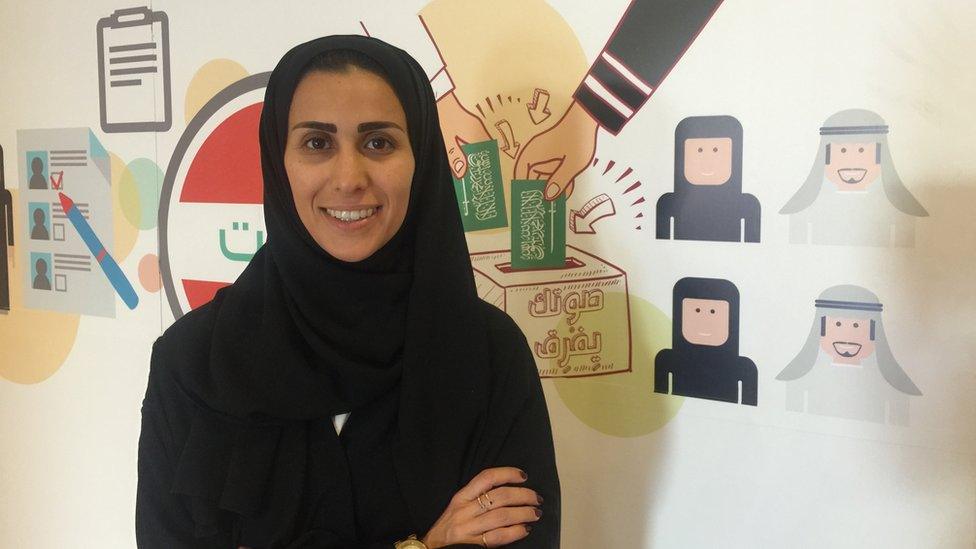
Sheikha al-Sudairy of the Al-Nahda Centre, where men and women are educated in the principles and practice of voting
At al-Nahda, where women are in charge from the board of directors to the cleaning staff, they've been educating women and men in the principles and practice of voting in a country with almost no experience of either. In Saudi Arabia's absolute monarchy, all major changes, including these new rights for women, come down through royal decree.
"We're talking about local councils and what it means to make a difference with garbage, water and sewage, so we're trying to convince people that exercising their civic responsibility will make a difference."
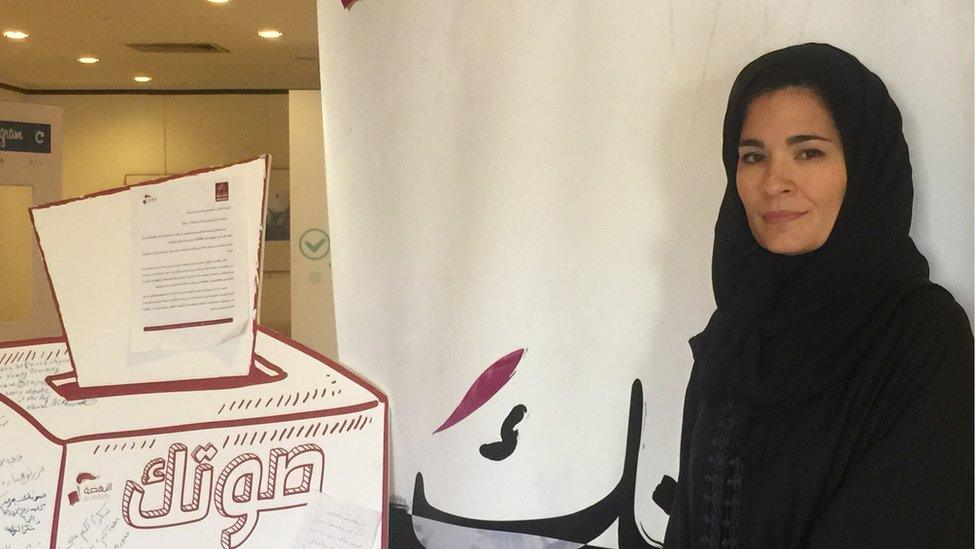
Rasha al-Turki, the CEO of al-Nahda
Their election video is a colourful and clever cartoon of a family driving through a Saudi city where they moan about overflowing garbage bins and traffic congestion, and then exclaim about the beauty of change.
"The response of those who come in for training has been elating," says Rasha Al-Turki, the chief executive officer of al-Nahda. "At first they are a bit cynical but by the end they are so empowered that you could connect an electrical device to them and it would start working."
That electricity still hasn't buzzed across a new generation of educated computer savvy women in Saudi Arabia, where a generous scholarship programme introduced by the previous monarch King Abdullah means women now outnumber men at university.
"I tell my students voting is a luxury we couldn't have," says Haifa Al-Hababi, who teaches architecture and urban design in the women's section of Prince Sultan University in Riyadh. "For our generation it was a dream and for them, they don't care. Can you imagine?"
Fear of disappointment
In Riyadh, the capital city regarded as more traditional than other main centres like Jeddah, I met many young women cautious about the change.
"I think it's a great step but I'd rather wait and see the results," says 27-year-old Sultana Ahmed, who works as a consultant on corporate governance.
When I ask what holds her back, she replies: "Maybe fear of disappointment. I want to see if the women can actually deliver."
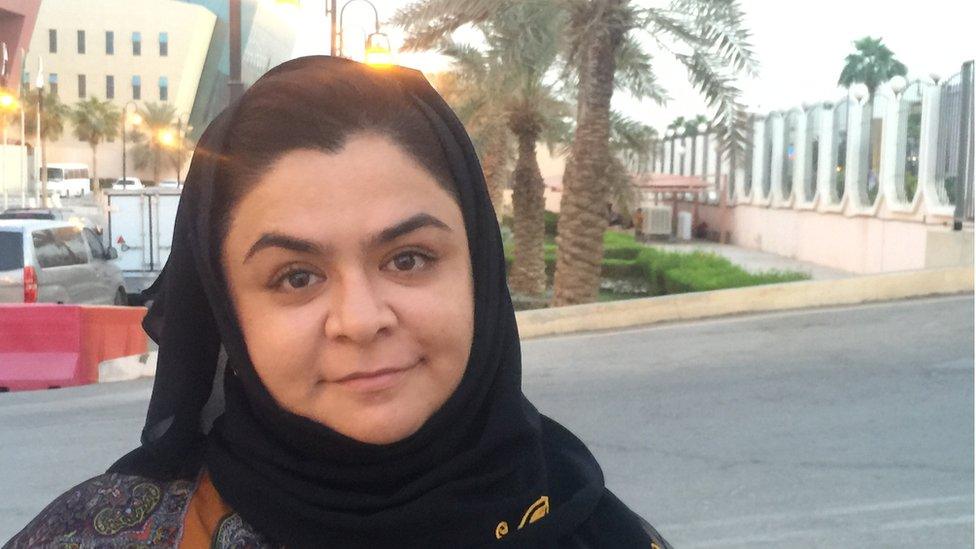
"We're making history" - Haifa al-Hababi
Sitting next to her, 29-year-old Adhwa Shaker agrees. "We are living in a society with a conservative mindset and we are trying to find a middle ground between our grandfather's generation and ours, and move forward together."
But there are more impatient young voices in a privileged society where the only real engagement on issues is through social media. Saudi Arabia has the highest per capita usage of Twitter and Youtube in the world.
'It's just a trick'
"People are afraid of change," says writer and human rights activist Bareea al-Zubeedy. "They think that behind every change, something bad will happen."
Bareea was part of the "Women to Drive" movement, one of the rare public expressions of women's protest in a conservative kingdom. Saudi Arabia is the only country in the world where women are forbidden from driving. Two women who defied the ban were released from prison earlier this year after spending 70 days in detention.
Bareea dismisses the idea of women's voting rights. "They're trying to make us think about small issues as if they are big ones," she says. "It's just a trick."
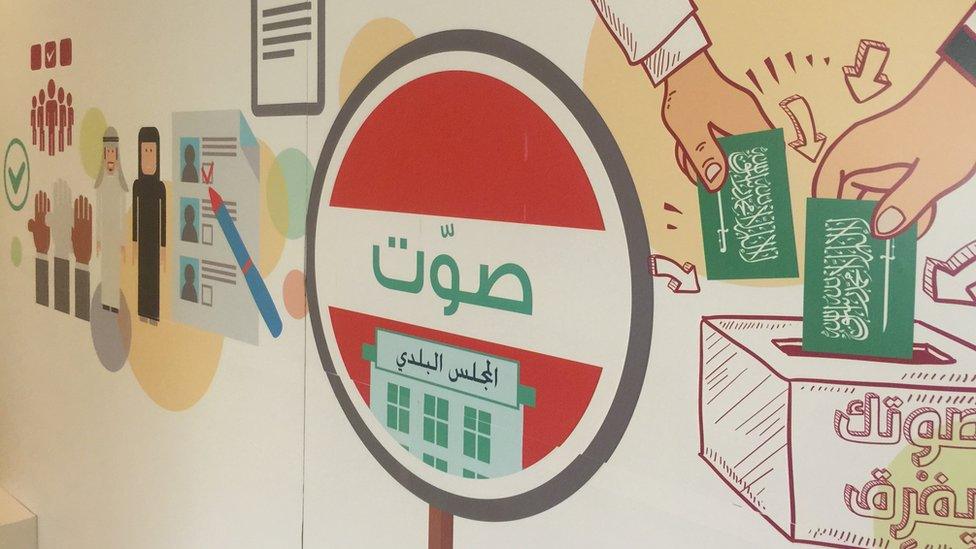
Voting murals on the wall at the al-Nahda centre
Women voting and standing in elections will give them more public visibility, even though campaigning must contend with strict rules which segregate men and women in public places.
A guardianship system which obliges women to seek the consent of men for everything from work to education to travel adds further complications.
'Give us time'
But you do see other examples of slow and, in Saudi terms, significant shifts in women's position - largely driven by royal decree and economic necessity.
Visit the ubiquitous shopping malls studded with luxury brands and you see women, clad in black cloaks - known as abayas - and headscarves, now working in every shop including supermarkets. Women are even manning security desks at the front door. That change is only a few years old and a new decree now makes it mandatory for every store serving women to employ them.
"Give us time," says 22-year-old Hana Bahannan, who is now studying at university. Her friend, 22-year-old Ohoud al-Arifi is also beaming with pride and optimism. "When I'm old enough to stand, I will run in the local elections," she says. "And someday I will be a minister in the government."
But could the kingdom's conservative clerics, who have fiercely opposed even these very limited changes, stop her? She shakes her head with a determination that is as great as the doubt of those who don't believe it will happen.
- Published27 November 2015
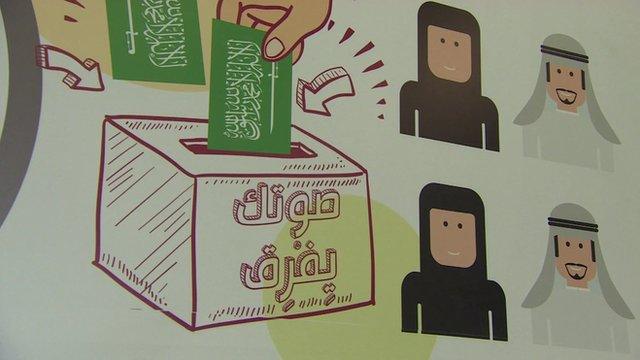
- Published24 November 2015
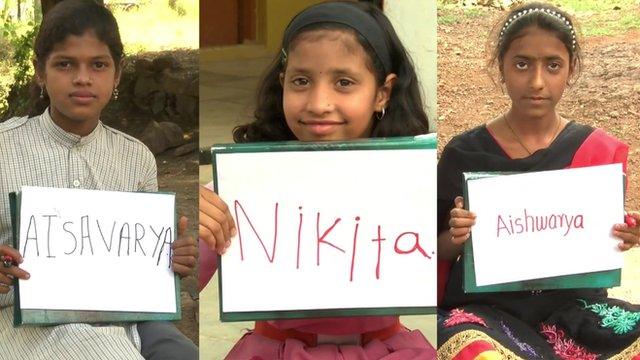
- Published23 November 2015
